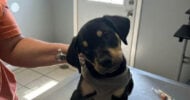Long ago, before I started practicing medicine, I worked in the retail sector. I was 15 years old when I earned my first real paycheck. Surely, I worked other odd and end jobs before that first “real job.” I mowed neighborhood lawns, shoveled snow off neighbors’ driveways, delivered newspapers—anything I could do to make a dollar or two. But those odd jobs were not “real jobs” with tangible or steady paychecks. As I embarked on a job search at the bright age of 15 years old, I started my journey at a candy store kiosk at a local mall. I was BIG TIME … making $3.35 per hour. After a few months, however, the novelty of that candy store job wore off, and I longed to advance my “career.” I soon landed my next job—selling sunglasses at another kiosk just down the corridor from that candy store. Rather than a lateral move, I was climbing the proverbial ladder. After only a few weeks selling sunglasses, I was named assistant manager. I was later humbled when I realized there were only two employees—the manager and me.
Those kiosk retail jobs did not quell my thirst and hunger very long. I soon secured a position with a large family-owned retail store—Anderson’s General Store. I started at the bottom. Along with my two high school buddies, I started in the cart crew—pushing and retrieving shopping carts, no matter the weather. I soon climbed ranks and moved on to cashier. That’s where I learned how to welcome customers, scan and ring up their purchases, and, most importantly, bag their goods without breaking any eggs or fragile items. It wasn’t very long before I was again promoted to phone operator. It was only a matter of time before the boredom and monotony of answering and transferring phone calls overwhelmed my enthusiasm for the job. However, I was promoted yet again…this time to customer service specialist. I held that position for several years, working through high school, all through college, and even during summer, winter, and spring breaks during medical school. That position and that company taught me the essence of hard work and the rewards that follow. It was through that job that I was able to pay my way through college and graduate debt-free.
One lasting impression from those days was that my employer and leadership expected a lot out of us. There was no time to be bored. If we were bored, we needed to find something to clean, to organize, to fix. But in return, that company and its leadership always had our backs and appreciated us. I vividly remember one Christmas season when I was working customer service and the “returns” counter was overflowing with angry, belligerent, and downright rude customers—just one day after the most wonderful time of the year! I couldn’t keep up with the work demand…or the angry customers. It was then that Dan Anderson, the VP of the retail division of the company, stepped behind the counter to, of all things, assist me. He firsthand witnessed the abuse, the disrespect, the vitriol directed at us customer service specialists. Before I could utter a word, he chimed in, said a few choice words to those belligerent people, set them in their place, and kept asking me, “How can I help you, Zoran?” Bewildered by the fact that the big kahuna was helping me, a peasant, and, more importantly, had my proverbial back, I worked harder that day and evermore for him, for that company, and for those who needed my assistance. True leadership reigned that day. It impressed upon me that there exist in this world a few whom I would follow. Dan was one of them.
As I look back upon those retail days and the lessons taught to me by that company, I harken back to the several shopping carts littered behind my returns counter. There was one for housewares, hardware, sporting goods, lawn and garden, etc. And there was also one for damaged goods.
Thirty years later, I find myself, like many of my colleagues, frustrated, burned out beyond reproach, and with the mindset and criticism that we physicians, clinicians, nurses, patient care aides—those of us who work at the bedside, not behind a desk—are just that…damaged goods. I remember my days in medical school as we began our journey into clinical medicine, seeing patients for the first time, and what it meant to interact with, listen to, and actually hear their stories, spend time with them, hold a hand if necessary, comfort a sick or dying patient, and heed the needs of their families. We could afford to do so…we were students. We were not productive. We were there to learn, to witness, to comfort, and, if the opportunity arose, to heal.
Many years later, after medical school and formal residency training, the unfortunate reality set in for us clinicians. I quickly learned that in order to survive financially in private practice in the primary care setting, I had to see volumes of patients. And when those moments arose where I needed to spend a little more time consoling, comforting, and caring for patients, I often did so by sacrificing my personal time with my own family…spending after-hours in my office charting when I should be home.
After realizing that was not conducive to my family and personal life, I left primary care to pursue hospital-based medicine. Those first few years were like a breath of fresh air. I could prioritize which patient I saw first, how much or how little time I needed to spend with them, comfort those who needed it, meet with families to discuss goals of care, and, best of all, I controlled my pace and almost always left work on schedule…thus affording myself time with family.
Sadly, over the ensuing years, hospital medicine changed. I quickly learned terminology that I never imagined would impact patient care. Terms like throughput, productivity, efficiency, length of stay, and customer satisfaction. It was then that I sensed the downfall of medicine. I never thought I would hear the term customer ever again after I left the retail sector. I was forever morally wounded when my former hospital contracted a five-star hotel chain to train every staff member on how to provide the best customer service before it opened its new surgical hospital at the tail end of COVID-19.
The timing could not have been worse. For those of us who worked for two years in the ICU, when we faced death and destruction several times daily, customer service training by a hotel chain was the fatal assault on our damaged souls. Shortly after COVID-19, a mass exodus of staff nurses, patient care aides, and physicians ensued, coinciding with a national movement of burnout and an exit from bedside medicine.
Three years now after the end of COVID-19, hospitals nationwide continue to struggle with staffing nurses, patient care aides, and even physicians. Hospital nursing units are closing due to a lack of adequate staff. Medical transport wait times now span hours and sometimes days, also due to lack of staffing. ER wait times, once advertised on highway billboard signs boasting less than 30 minutes in the pre-COVID-19 days, now exceed 12-hour shifts and sometimes even days. What was once a proud and noble profession to care for the patient has evolved into an assembly line process void of human interaction, void of a sense of community, and geared toward improving the almighty metrics. As such, that exodus from the bedside continues to grow.
Where I come from, we call them patients, not customers. I treat my patients as I would treat my own mother. And I think the majority in health care does so as well. We should remind ourselves of what led us into health care—the patient. For us physicians who trained in the U.S., we took an oath upon graduation from medical school. For some of us, especially me, that oath still means something. And I honor it. We need to return to the core of our training and to that oath…before we all become damaged goods and no one else remains to care for the patient.
And for the record, I refused to attend that customer service training. I could teach the course!
Zoran Naumovski is a hospitalist.




















![Uterine aging plays a critical hidden role in IVF outcomes [PODCAST]](https://kevinmd.com/wp-content/uploads/Design-2-190x100.jpg)


![Primary care receives only five cents of every health care dollar [PODCAST]](https://kevinmd.com/wp-content/uploads/Design-4-190x100.jpg)
